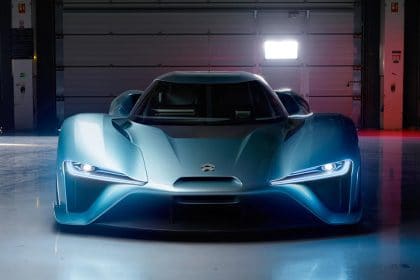Such volatility is common when investors are waiting for corporate earnings results. In addition, investors are observing the Federal Reserve that is getting ready with a major policy decision to tighten monetary policy.
On Monday, shares of electric vehicle (EV) start-ups tanked, with many of them reaching 52-week lows. Rivian Automotive Inc (NASDAQ: RIVN), Nio Inc (NYSE: NIO), Faraday Future Inc (NASDAQ: FFIE), Canoo Inc (NASDAQ: GOEV), Lordstown Motors Corp (NASDAQ: RIDE), Nikola Corp (NASDAQ: NKLA), Fisker Inc (NYSE: FSR) to name a few, all suffered, losing from 10% to 18% before 1 p.m. during intraday trading yesterday.
For example, Rivian stock tanked below $60 per share on Monday, before rebounding and closing at $63.90. NIO shares dropped to $23 before closing the trading at $24.87. Fisker stock had been down by about 14%, close to its 52-week low, and ended the day at $11.94.
Speaking of EV giants such as Tesla Inc (NYSE: TSLA), Ford Motor (NYSE: F), and General Motors (NYSE: GM) tanked as well, trading 7% to 9% down. However, by the end of the session, they narrowed their losses.
Market Sell-Off
The plunge of EV shares on Monday came as a result of a broader market sell-off, with investors taking advantage of prices.
In intraday trading on Monday, the Dow Jones Industrial Average (DJIA) dropped by nearly 1,000 points or 2.9%. Notably, it has been falling for the seventh day in a row. Further, the S&P 500 index plunged by 3.6%. The Nasdaq Composite fell as much as 4.5%, getting deeper into correction territory.
Wedbush Securities analyst Dan Ives commented:
“In this brutal market sell-off, the Street has tossed many of these EV startups into the sell camp as the lack of profitability, chip shortage issues, and host of production issues have cast a dark shadow over the sector. In this risk off-market, EV startups find themselves on the wrong side of this market storm with now execution is key to build back credibility on the Street one brick at a time.”
What has caused the swings in the market? Such volatility is common when investors are waiting for corporate earnings results. Currently, the companies are preparing to announce Q4 2020 results. In addition, investors are observing the Federal Reserve that is getting ready with a major policy decision to tighten monetary policy. The changes are inevitable, the question is only how fast they will take place.
In March, the Fed is planning to raise interest rates. Other measures to tighten the policy as well as handle the inflation include allowing passive balance sheet runoff, increasing the policy rate, and adjusting the timing and pace of subsequent policy rate increases. As investors are trying to figure out further intentions of the central bank, they are worrying. Therefore, we are observing the volatility of the market.
next